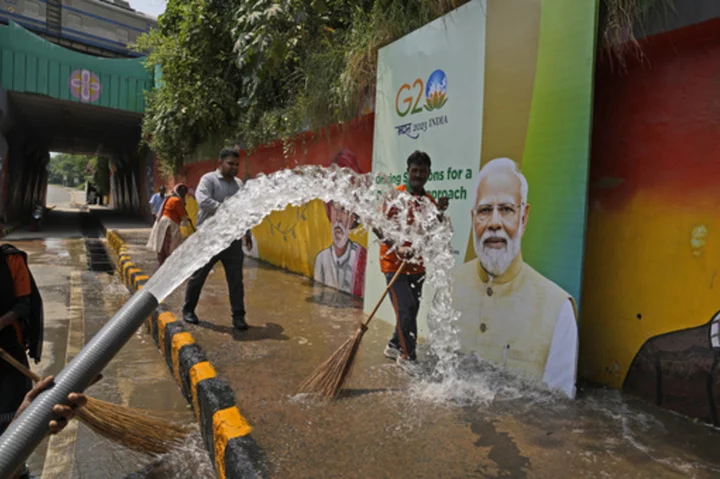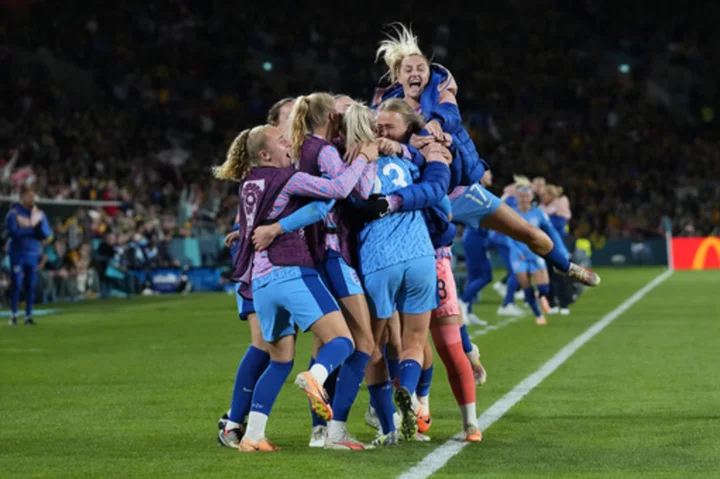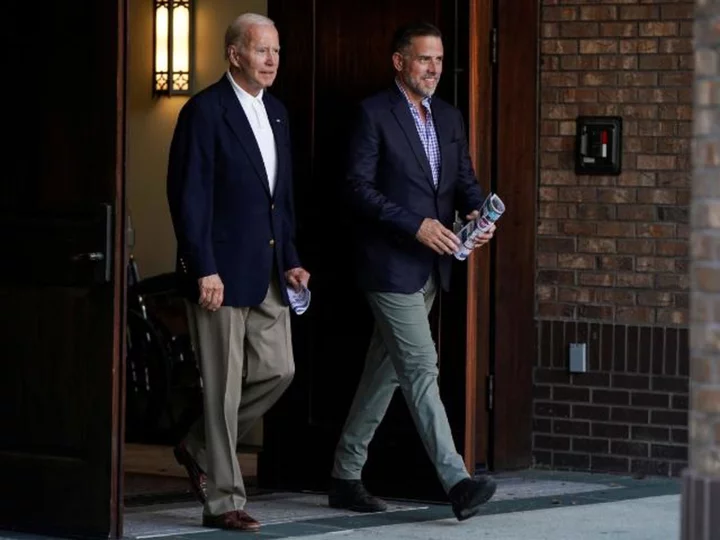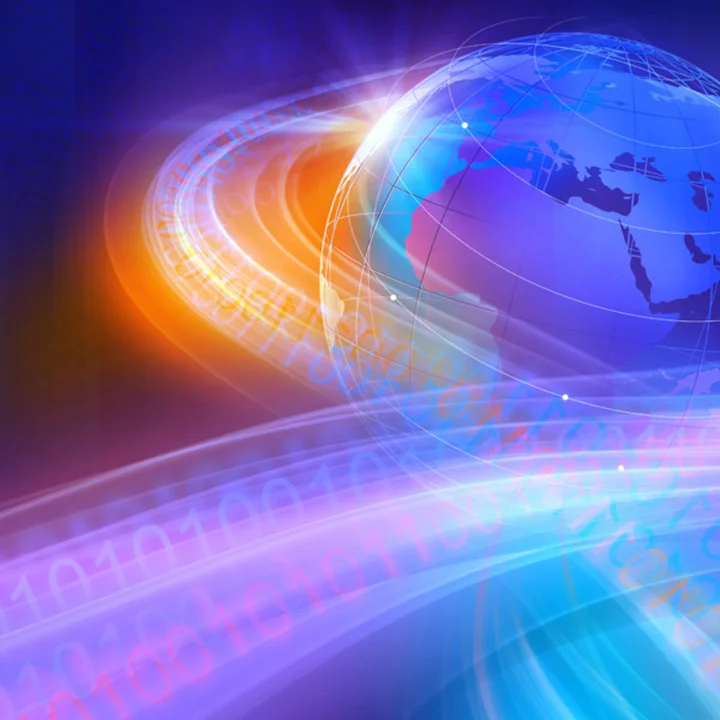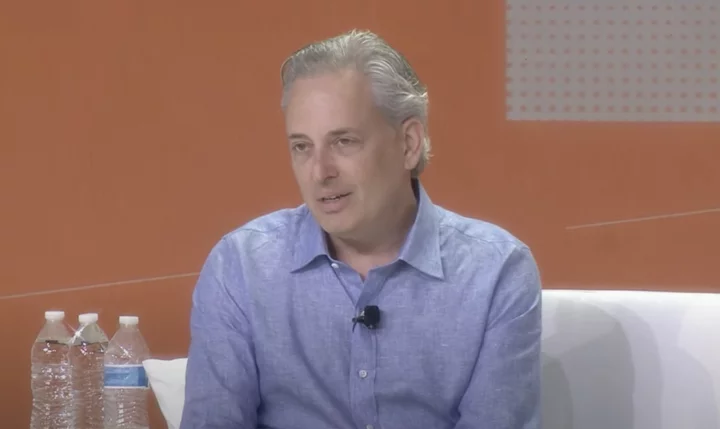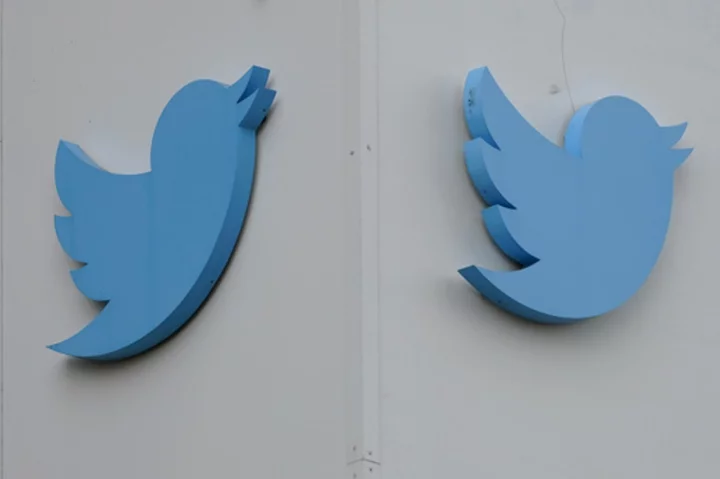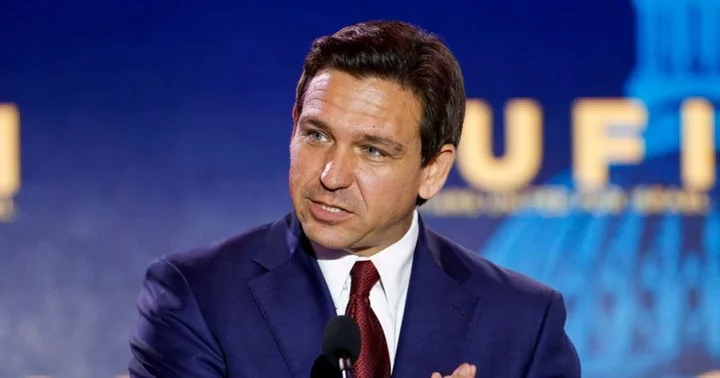NEW DELHI (AP) — It’s never been easy for the leaders of the world’s largest economies to find common ground, but Russia’s war on Ukraine has made it even harder for the Group of 20 meeting to reach meaningful agreements this year.
Indian Prime Minister Narendra Modi, this year’s host, has pledged Ukraine won't overshadow his focus on the needs developing nations in the so-called Global South, but the war has proved hard to ignore.
As leaders began arriving Friday, Indian diplomats were still trying to find compromise language for a joint communique.
“New Delhi will not want to distract from the main agenda, which is to address issues of concern for the Global South,” said Nazia Hussain, an associate research fellow at Singapore's S. Rajaratnam School of International Studies.
“So while there will be discussions on the emerging issues as a fallout of the war — supply chain security and decoupling, energy security, and food supply — the focus must remain on how to mitigate the fallout rather than debate the geopolitical/security aspects of the war.”
Russia and China, which has been Moscow’s most important supporter in the war against Ukraine, have rejected draft communiques over a reference to Ukraine that said “most members strongly condemned the war,” the same language they signed off a year ago at the G20 summit in Bali
The European Union, meanwhile, has said compromise language suggested by India is not strong enough for them to agree to, while the U.K. said that Prime Minister Rishi Sunak planned to press G20 members to take a tougher line against Russia’s invasion.
Ending the summit without a communique would underscore how strained relations are among the world’s major powers.
European Council President Charles Michel told reporters Friday that it was important to give India space as it worked “actively, maybe sometimes discreetly, to maximize the chance for a communique.”
Ukrainian President Volodymyr Zelenskyy addressed the Bali summit by video last year, but Modi has made a point of not inviting Ukraine to participate in this year’s event.
Canada’s Prime Minister Justin Trudeau has promised Zelenskyy to keep Ukraine in the discussions, telling him in a video call that the leaders posted on Instagram: “I’m disappointed that you won’t be included but as you know, we will be speaking up strongly for you.”
Founded in 1999, the G20 began with a focus on global economic challenges, but since then, geopolitical tensions have complicated its ability to work effectively, said Ian Lesser, vice president of the German Marshall Fund and director of its Brussels office.
Russia's attack on Ukraine and China's growing assertiveness in the Asia-Pacific region have added friction, pitting some of the most powerful G20 countries directly against each other diplomatically, Lesser said.
“Having China and Russia in the room now is a very different question than it would have been a decade ago,” he said. “It is very difficult now for any of these large-scale summits to avoid the major issues of the issues of the day, and these major issues are very polarizing — the war in Ukraine, tensions in the Indo-Pacific, even climate policy — the things that are both at the top of the global agenda but also very difficult to address.”
Russian President Vladimir Putin and Chinese President Xi Jinping will not be attending the G20 themselves, instead sending lower-level officials.
Russia and China did not indicate why their leaders were not attending, but neither have traveled much recently and both seem to be putting a greater emphasis on the more like-minded BRICS group of nations. That group agreed at its summit last month to invite six new members.
China’s relations with India continue to be strained over ongoing border disputes, but, Modi discussed issue face-to-face with Xi at the BRICS summit and China’s Foreign Ministry said Beijing considers India-China relations “generally stable.”
India also has historic ties with Moscow, but is on good terms with the U.S. too. Modi is hoping to use his country's influence to bridge gaps between the wealthy nations that have been standing together to sanction Russia over the Ukraine war and the Global South.
About half of the G20 countries are found in the Global South — depending on how one defines it — and Modi hopes to add the African Union as a bloc member.
In preparation, he held a virtual “Voice of the Global South” summit in January and has emphasized issues critical to developing nations, including alternative fuels like hydrogen, resource efficiency, developing a common framework for digital public infrastructure and food security.
“For the Global South, India’s presidency is seen as an opportunity with immense potential to address developmental needs, particularly as Brazil and South Africa are set to take over the presidency of the G20 from India in 2024 in 2025 respectively,” Hussain said.
U.S. National Security Adviser Jake Sullivan told reporters before Biden's departure that the president supported adding the African Union as a permanent member and that the president hoped this summit “will show that the world's major economies can work together even in challenging times.”
The U.S. will also focus on many of Modi's priorities, including reforming multilateral development banks to help developing countries, Sullivan said. Biden will also call for “meaningful debt relief” for low- and middle-income countries, and seek to make progress on other priorities including climate and health issues.
U.S. Treasury Secretary Janet Yellen on Friday dismissed suggestions that the proposals are designed to counter China's global lending and investment through its so-called Belt and Road Initiative.
Michel, the EU council president, said he had hope the summit would be productive.
“I do not think the G20 will resolve in two days all the problems of the world,” he said. “But I think it can be a bold step in the right direction and we should work to make it happen and support the Indian presidency.”

